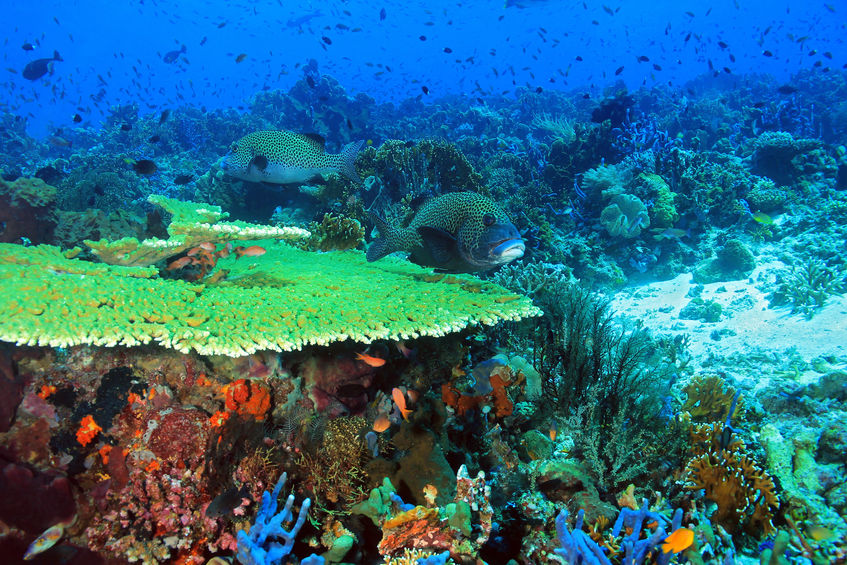Despite record-high emissions of carbon dioxide and hottest ever temperatures, the Great Barrier Reef was again enjoying one of its best years yet. In the 40 years that AIMS has been studying it, the last four years have been great results.
Judging by the data, corals are coping fine with today’s heat and CO2. But the more money we spend finding a climate crisis, the worse our science institutions get. One-sided money and monopoly science can turn any institute into a tax-grabbing-machine, that serves the Blob, not the people. Thus is it so.
The AIMS annual reef survey for 2025 tells us that the Great Barrier Reef had suffered “a sharp decline after a record-breaking heatwave.” Worse, mass coral bleaching is becoming more frequent as the world warms, and the time between events is shrinking, giving corals less time to recover.
Peter Ridd took the same data and did the graph that AIMS, with $90 million in taxpayer dollars, couldn’t do — so we can all appreciate the full disaster. And here it is:
AIMS also tells us that the “reef is more volatile,” and has suffered the tragedy of declining from record highs all the way back to “near long-term average trends,” which sounds awful, I mean, “normal.” Like regression to the mean. Though it doesn’t look very “average” in the long term graph that AIMS doesn’t want you to see.
The Blob Media promptly took the one-sided, politically-convenient AIMS press release, investigated no claims, asked no hard questions, and churned out the worst possible interpretation of a good result — which is apparently exactly what AIMS expected, because they didn’t complain.
The ABC, with a billion dollar budget, could have done the graph Peter Ridd did. They could have asked AIMS for it. Heck, they could have just phoned Peter, he would have given it to them, and with a smile. Instead they pressed the “Climate Alarm: Give us Your Money” button.
The ABC | The BBC | The Guardian
It’s clear that The Australian Institute of Marine Science (AIMS) is not even trying to give Australians the most meaningful information they can on the reef. When the media exaggerates the crisis, the experts are happy. AIMS don’t ring up the journalists and correct them. They don’t explain the bigger perspective.
AIMS researchers surely know, but won’t mention things like, the extraordinary genetic adaptability of reefs. Corals already have the genes to survive another 250 years of climate change. They can use epigenetic tricks to adapt to warmer and “more acidic” water, and the Great Barrier Reef has 112 protected tough spots that survive and replenish after bleaching.
Corals got bleached way back in 1862, before the first coal plant, and long before the Ford Model T. Most likely corals have been bleached on and off for millions of years, it’s just that there were not many scuba divers around to take a photo or collect an ARC grant in two million BC.
After millions of years of asteroids, volcanoes, wild temperature changes, and dramatic shifts in atmospheric gases (plus sea level swings of 125 m), it would be a shock if corals did not have a full toolkit to cope with a bit of climate change.
This article originally appeared at JoNova.


